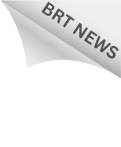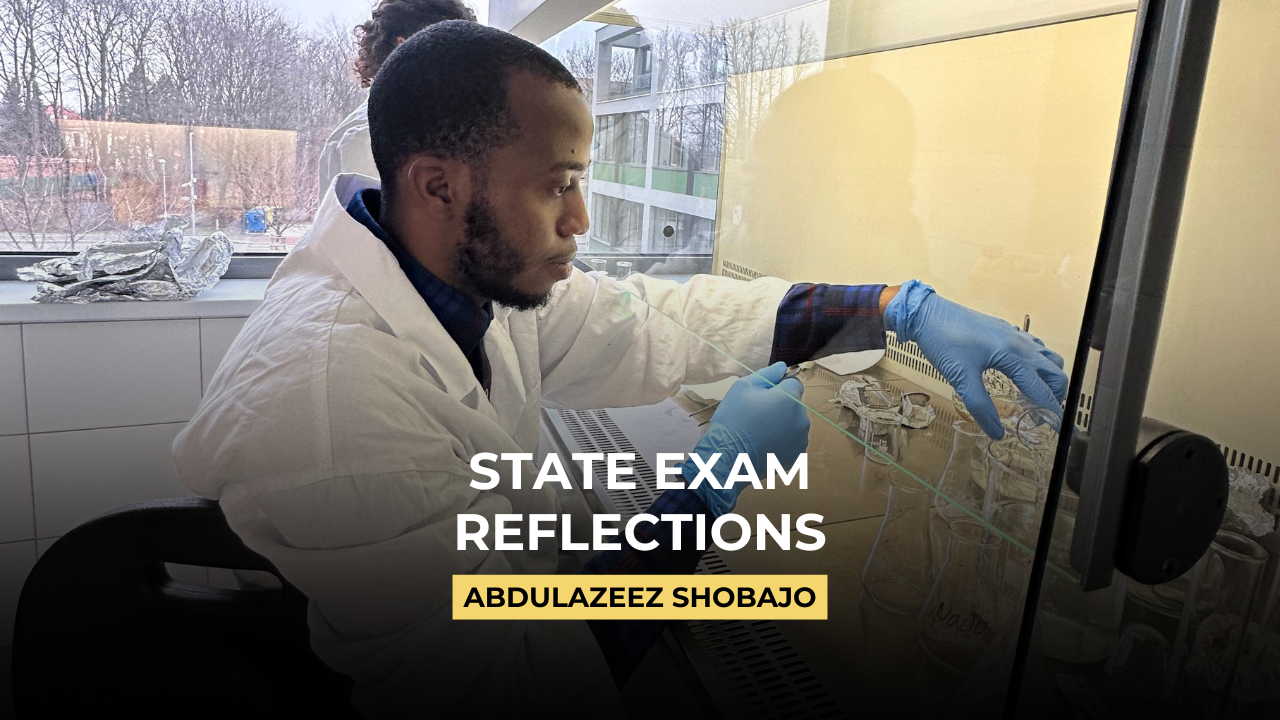The state exam is a key milestone in the PhD journey, testing both subject knowledge and the ability to synthesize and apply research concepts. In this blog series, BRT PhD students provide an inside look at the exam process — from preparation methods to the structure of the exam itself — offering insights into this essential academic requirement. Read PhD student AbdulAzeez Shobajo’s first account below!
Successfully completing the PhD state exams after months of preparation and countless hours of research marks a significant milestone in my academic journey. The road to the exam was paved with long days of reading, writing, and analyzing research results.
The state exam commenced with a presentation of my research work and achievements throughout my doctoral studies. I presented preliminary results, discussed my observations, and elaborated on the next stages of my research, including the research questions and objectives that are guiding my future work. The state exam itself focused on three major topics aligned with the research focus of my Ph.D. They were, Appropriate Technologies in the Tropics and Subtropics, Organic Waste Management, and Sustainable Technology for Waste Management. The central topic of my research is the recycling of phosphogypsum (PG), a byproduct of the phosphate fertilizer industry, which can be transformed into valuable bio-based products. Generally, I was able to illustrate how phosphogypsum can be effectively used in tropical and subtropical regions, to enhance digestate and compost quality while reducing environmental waste and promoting an eco-friendly, cost-effective approach to recycling industrial byproducts and opening new economic opportunities.
During the exam, the questions I faced blended theoretical frameworks with the practical aspects of my research. I was asked to compare the environmental impacts of phosphogypsum recycling to traditional disposal methods, which allowed me to emphasize that recycling reduces waste accumulation, lowers pollution levels, and minimizes the risks associated with storing large quantities of byproducts. When prompted about safe processing methods, I shared how techniques like washing, acid treatment, and thermal treatment can remove contaminants, thereby ensuring the recycled material is safe for a wide range of applications. The discussion also extended to the potential of creating value-added products such as construction materials (drywall, cement), fertilizers, and soil conditioners and the economic benefits of reducing disposal costs and generating new market opportunities.
I mentioned the possibility of using phosphogypsum to enhance the quality of final compost, which sparked a lengthy and enlightening debate with Professor Jan Banout. He later expatiated on the potential upsides of this approach, like improved soil conditions and nutrient content, as well as the possible drawbacks that could be faced. This engagement opened up a new scope of possible direction and significance of my work, which made the questioning process both enlightening and enjoyable. In fact, the biggest surprise of the entire exam was just how encouraging and positive the examiners were. Although I expected the rigorous scrutiny I met, but that didn’t undermine their genuine interest in my research and willingness to question new ideas. I was feeling even more enthusiastic when I left the exam room, and more motivated to advance my research and make positive impacts.
Looking at my preparation towards the exam, I wouldn’t necessarily change anything. The exam tested not only my proficiency in the research field but also my ability to engage in intellectual dialogue with experienced experts. Literature reviews and in-depth discussions with my supervisors and colleagues helped me refine my concepts and anticipate potential questions. For fellow PhD students about to face their own state exams, my advice is for them to build a solid understanding of both the theoretical and practical dimensions of your research, remain optimistic, and be prepared for insightful discussions that may open new perspectives.
Having successfully passed my state exams, I am rekindling this momentum and motivation to pushing my research to its full potential of phosphogypsum recycling and industrial waste management. My immediate plans include finalizing experiments related to PG digestate, undertaking plating trials to evaluate its performance, and conducting Life Cycle Assessments (LCA) and Cost-Benefit Analyses (CBA) to gauge both the environmental and economic implications of my work. I hope to contribute meaningful progress in the field of waste management and sustainable technology.
Passing the state exam is a significant milestone. I see it as the beginning of the second half of my doctoral studies, but I am far from the finish line. It feels more like an opportunity to conduct more innovative research and forge new directions in sustainable waste management. I look forward to sharing further updates as I progress in my studies and work toward making a lasting impact!
For more details on BRT activities, subscribe to our newsletter or follow us on social media for regular updates and highlights.


